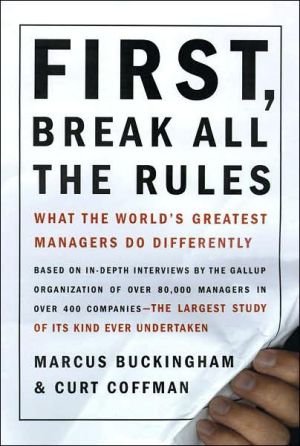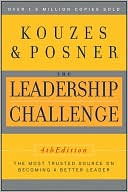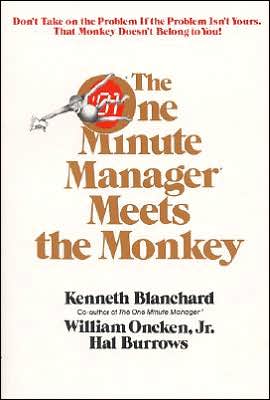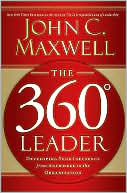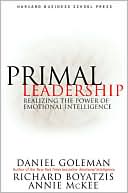It Takes a CEO: It's Time to Lead with Integrity
Should CEOs act as moral compasses for their companies? Leo Hindery thinks they should. If every CEO did so, then Enron, WorldCom, Adelphia, and Tyco would not have become poster children for greed. They would not have become corporate embarrassments -- living illustrations of all that can go wrong in the corner office. How did these once prestigious companies fall off the ethical cliff? How is it that reputations were destroyed, shareholders lost value, employees (in many cases) lost...
Search in google:
Should CEOs act as moral compasses for their companies? Leo Hindery thinks they should. If every CEO did so, then Enron, WorldCom, Adelphia, and Tyco would not have become poster children for greed. They would not have become corporate embarrassments -- living illustrations of all that can go wrong in the corner office. How did these once prestigious companies fall off the ethical cliff? How is it that reputations were destroyed, shareholders lost value, employees (in many cases) lost everything, and, in a few cases, entire companies disappeared? Everyone is pointing fingers, and the new widespread mistrust of public companies may turn out to be more damaging to America's economic future than the billions actually lost in the scandals. Now, one of America's most prominent corporate leaders illuminates the need for more integrity and less greed among executives. In a scathing examination of why leaders have lost their way, Leo Hindery speaks out on the role of the CEO. Does the corporate culture have to be driven by greed? Or can you do good and still make good in the big business world? Leo Hindery, the former CEO and President of companies such as AT&T Broadband, TCI, and the YES Network -- and currently Managing Partner of InterMedia Partners -- forcefully advocates approaching a business career as life's meaningful work, and not merely as a way to accumulate personal wealth. Both fiery and optimistic, Hindery calls upon his fellow executives to conduct themselves with the kind of integrity that used to be commonplace, but now seems all too rare. Holding his moral yardstick up to some of the worst transgressions in recent memory, Hindery tackles the toughest issues of the day head-on: • Why should the ratio of average CEO pay to average employee pay today be 304:1 -- and in some cases, as high as 2,300:1? • What does it mean when 80 percent of all viewed media content is owned by just 5 companies? • If offshoring is good for the global economy, what needs to be done to make it fair? • What should the role of the board of directors be, and whose job is it to take care of employees?With passion, insight, and humor, Hindery reinvigorates the code of business conduct. It Takes a CEO is a corporate handbook for our times -- not for how to get ahead, but for how to lead with integrity, grace, and heart.
It Takes a CEO\ It's Time to Lead with Integrity \ \ By Leo Hindery \ Free Press\ Copyright © 2005 Leo Hindery\ All right reserved.\ ISBN: 0743269853 \ \ \ INTRODUCTION: What Takes a CEO?\ I have been the president or CEO of five major media and cable corporations. Based on that experience, I've written a book about corporate deal making (The Biggest Game of All). I've gotten to know lots of movers and shakers: some admirable characters, others less so. I've made a lot of money -- for my shareholders and my employees, as well as for myself. And at times, I've pushed my peers in corporate America to think more broadly about things like AIDS, diversity, partner benefits, and other difficult issues.\ I'm often asked to speak to corporate and university audiences. Although my stump speech continues to evolve, and although I tailor it to particular audiences, it generally focuses on the need to 1) recognize your responsibilities in life and 2) act on those responsibilities. When I get going in front of a crowd, I can generally get that crowd going too.\ But it's not an act. I believe every word of it, and I've tried to live it in my own life.\ When the title of this book -- It Takes a CEO -- was chosen I realized that some people might misinterpret it. No, the point is not that CEOs are all-knowing or all-wise or all-powerful. The point is that CEOs have a special role to play in our society. Because of the way our society is hardwired, there are certain very important things that only a CEO can tackle.\ How important are these things, and what's at risk? What's at risk is the entire way of life that we've come to treasure in America, and which people around the world -- no matter what they may say about us -- wish they had for themselves.\ What You'll Find Here\ What you'll find in this book is an analysis of how we've gotten into some of the messes we're in, and also a prescription for getting out of them. I don't intend to pull punches.\ For example, a lot of today's crop of CEOs are irresponsible or criminal or both. Some of them -- the Kozlowskis, Ebberses, Rigases, Lays, Skillings, and so on -- have made headlines with their antics. But there are many more of them out there who are just hunkering down and hoping that their own shenanigans won't turn into tomorrow's headlines. And there's a far bigger bunch who don't have these kinds of skeletons in their closets but unfortunately have nothing to point to on the positive side of the ledger either. When you say to these guys that it takes a CEO, they tend to blink uncomprehendingly and ask, "Well, to do what, exactly?"\ In the following pages, we'll look at reasons people should (or shouldn't) go into business in the first place. In my own experience, leading corporations is a tough, lonely job. Pushing corporations and other human organizations in directions they don't necessarily want to go is a long, hard slog. If you do the job right, it may pay you well, but it will definitely cost you dearly. I know this; my first two CEO jobs cost me my marriage.\ We'll also look at the overconcentration of power in this country and the negative consequence of that trend. After an early apprenticeship in the natural-resource industry and a stint on Wall Street, I went into the communications and media world, so that's the sector I will focus on to make some of my arguments.\ Are you worried that five media companies control more than 80 percent of what's seen in America today? I am.\ Are you worried that those companies are engaged in an ethical and aesthetic "race to the bottom" -- that is, chasing the highest ratings by sniffing out the lowest common denominator? Are you worried about Fear Factor and The Swan, and what the networks may be planning next? I am.\ Next, we'll look at some executive compensation and corporate-governance issues that CEOs have to think and worry about a lot more. Again, the subtext here is responsibility.\ That subtext recurs in the chapters focused on outsourcing and on the corporation's obligation to take care of its employees. No, there are no easy answers to the challenges of competing on a global stage, where some of your faraway competitors couldn't care less about things like exploiting children and despoiling the environment. But the fact that it's hard is no excuse for not trying to deal with the problem. Lots of aspects of business are hard. In theory, at least, that's why CEOs get paid so much.\ I also include a chapter that I call "Wal-Mart Nation?" I put the question mark there because the current struggle between Wal-Mart and Costco really speaks to the heart of a terrible dilemma facing our nation. Wal-Mart, in some ways, is the corporate equivalent of Fear Factor. Sam Walton's juggernaut has vanquished most of the competition, but the Wal-Mart "win" is not much to be proud of: $9.96 an hour, on average, with one of the most-costly-to-employee health-care "benefits" anywhere. Meanwhile, over at Costco, Jim Sinegal is risking the wrath of Wall Street by trying to do the right thing by his people.\ And guess what? His employees know it, and they're trying to do the right thing by him too.\ And finally, I include a short chapter called "The CEO Checklist," which is no more or less than standards to which prospective employees should hold their prospective employers. The question they should seek to answer, through this exercise, is, Is this company good enough for me?\ That may seem like a strange question to be asking in turbulent economic times, when getting and holding on to a job can be a tough challenge. But if everybody asked this question -- Is this company good enough for me? -- Sam Walton's very wealthy heirs and other shareholders wouldn't get away with paying employees just $7.60 an hour.\ Who Should Read This Book\ The preceding quick summary should give you some idea of the kinds of people this book tries to speak to.\ Ideally, I'd like to influence some of my fellow CEOs. I have a vision that I savor: the CEOs of this country's thousand largest companies band together, storm Capitol Hill, and declare their collective determination to launch the equivalent of a Marshall Plan to help rescue the U.S. economy and its middle class, just as the original Marshall Plan rescued Europe and its war-torn populations in the wake of World War II. Is this a pipe dream? Maybe. Maybe not.\ But by the time you get to be a full-fledged CEO, you're pretty hard to influence. So I really want to influence the next few generations of CEOs in this country. I want to scare certain kinds of young people out of even applying for the job. And I want to encourage other kinds of young people to apply, even while I'm warning them about what they're really getting into.\ More broadly, I want to give hope and inspiration to a large and growing group of people who don't currently have much of either. As I write this introduction, the late Ronald Reagan is still being remembered and mourned. In his time as president, Reagan was known and loved for his almost relentless optimism. He talked of cities on hills, of mornings in America, and of a country whose best days were ahead of it. Americans responded to that vision -- even Americans who had never before dreamed of signing on with a conservative Republican's agenda.\ America's best days can be ahead, but not if we continue on the course we are on. We need to change course. We need to steer toward a new shore. That shore is in sight. But it will take a CEO (multiplied by the hundreds and the thousands) to help us get there.\ Copyright © 2005 by Leo Hindery\ \ \ Continues...\ \ \ \ Excerpted from It Takes a CEO by Leo Hindery Copyright © 2005 by Leo Hindery.\ Excerpted by permission.\ All rights reserved. No part of this excerpt may be reproduced or reprinted without permission in writing from the publisher.\ Excerpts are provided by Dial-A-Book Inc. solely for the personal use of visitors to this web site. \ \
Introduction : what takes a CEO?11The problem, and how we got there52The few : the proud : the brave214Putting democracy on the block525CEO compensation : what's wrong, what's right706A tale of three boards857Outsourcing and offshoring1018Wal-Mart nation?1189Putting the health back in health care13710The CEO checklist153

